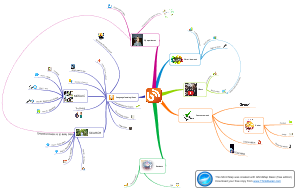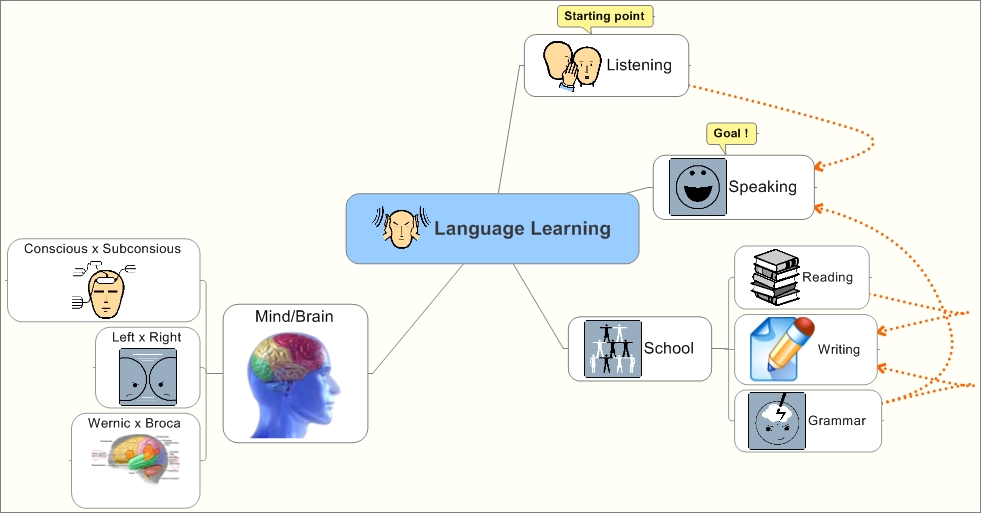So, from my personal perspective, the LISTENING and the SPEAKING are our natural, maybe genetically inherent abilities, which we, as human beings have inside of us for millions of years. We do not need any school education to attain them. Rather different situation is with reading and writing. These skills need the school or some teacher support (in most cases).
But why is the speaking for us learners with ESL (English as Second Language) so problematic? I think that the reason is that we approach it from the wrong direction. We start usually with learning lists of words (and it is a mix of our native language and target (learned) language, we learn a bunch of grammar rules (riddled by exceptions) and then we TRY to combine those words together, using those complex rules … Sometimes, we (as children) hardly know the meaning of the words (even in our native language, because we do not use them actively very much, or at all, or they are for us rather meaningless. The topic is irrelevant, but school book forces us to learn them anyway). We learn a lot ABOUT that language, about its structure, grammar... We learn a lot ABOUT it in our native language. A teacher is not, in many cases, a native speaker. We hardly know the correct pronunciation because of it, we hear more our own language during lessons of foreign language then foreign language itself. This MIX of languages creates its equivalent in our head.
Yes, it is as it is and we cannot do too much with it. We cannot change the school system immediately. I think that such learning about the language can be useful to some extend too. But it is not real language learning. It is learning ABOUT it. And it is a big difference. So, what we can do? We can return to the natural process – “listen and imitate” and the school let as kind of supplement only. About listening we were talking before. So, to the speaking - how to “imitate” the speaking? Simply: You can listen a speak together or slightly delayed as you are listening at the same time. Do it this way: You are listening native speaker (you already perfectly understand because of previous activities) and you imitate his (her) pronunciation (you are familiar with too). After while you can be even slightly beforehand. Advantage is that you can compare yourself with the “real” speaker, you do not need (at that phase) any partner and you are becoming familiar with yourself (with your voice) speaking in the foreign language.
The second way (or (sub)phase) could be similar to the writing exercises we did – after listening you can try to say it in your own way, preferably using same (or some) vocabulary from the material you have just heard. /Here I would like to make a little remark – chose the topic you are INTERESTED IN, which has some MENING for you!/ You can notice that some words are more difficult to remember and to be used for you – you can mark them somehow (color). You know (understand) them but you cannot use them in your speech. It is you passive vocabulary. And to activate it? It needs speaking, using it, be active … there is no other way! Repeat, practise.
What I found very useful, after years of listening and some reading (but being unable to speak well) and after some attempts to speak with my friend via Skype (which had some impact, but made me feel a bit frustrated) is the method called Brain Speak Activator – which is “easy” to use, it does not need any partner, you do not need to be under any pressure, to be self-conscious, shy... or to "suffer" anyhow. You can do it on you own, with your own pace. Originally it was not intended to be language learning tool. But It had enormous impact on me and my speaking! I will write about it next time (noticing that the post is rather long already) and I will reveal my “English story” to you.
To be continued …



 RSS Feed
RSS Feed


